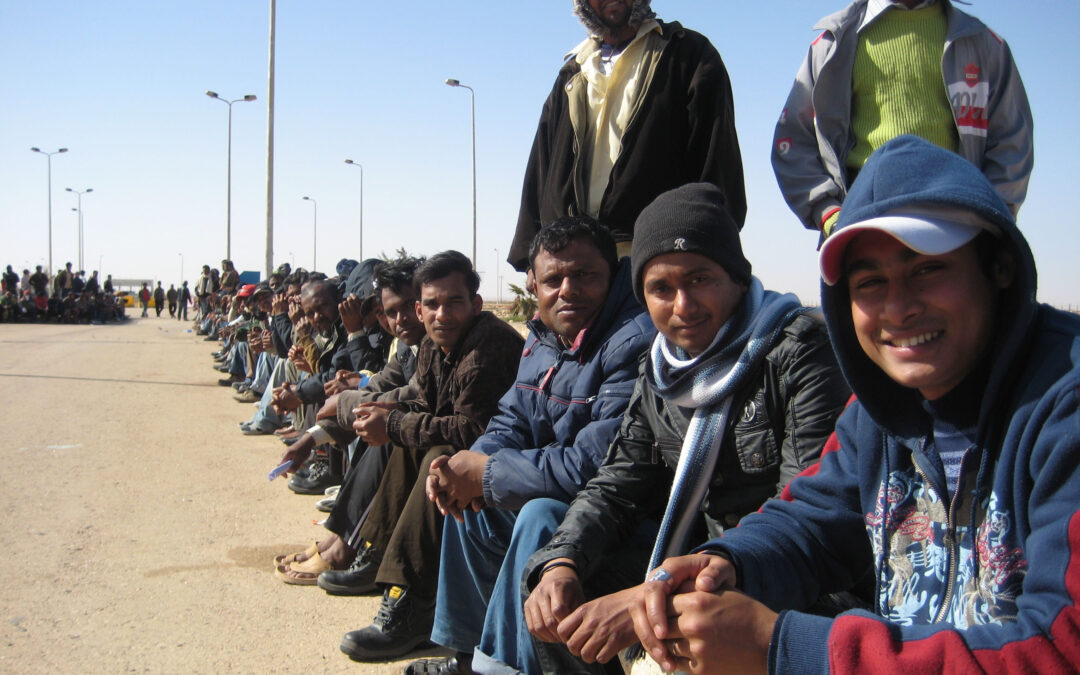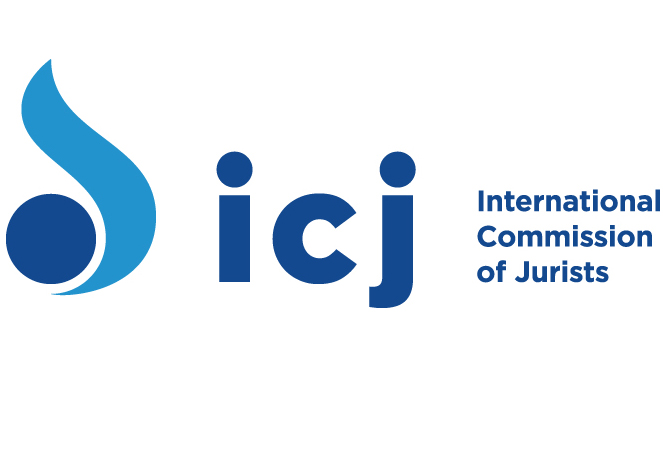
Nov 3, 2014 | Events, News
The ICJ, OSCE and Group 484 are holding a training on migration and international human rights law starting on Monday 3 November in Arandelovac (Serbia).
The training has been organised by the Organisation for Security and Cooperation in Europe (OSCE) and the Serbian NGO “Group 484” and will be given by the International Commission of Jurists. It will focus on international protection of migrants and asylum seekers, the principle of non-refoulement, and administrative detention, drawing from the jurisprudence of the European Court of Human Rights, of the UN human rights systems and from EU law. The training will be centered on the ICJ Practitioners Guide no. 6: Migration and International Human Rights Law.
Serbia-JointTrainingMigrationHR-Events-2014-ENG (download the agenda in English)

Oct 3, 2014 | Agendas, Events
Today, the International Commission of Jurists (ICJ) held its second expert roundtable on asylum claims based on sexual orientation and/or gender identity.
Participants included asylum judges, lawyers, and academics, as well as officials from the Office of the UN High Commissioner for Refugees and staff members from a number of civil society organizations.
Prof. Hathaway, Director of the Program in refugee and asylum law at the University of Michigan Law School, Prof. Anker, Director of the Harvard Law School’s Immigration and Refugee Clinical Program, and Judge Lars Bay Larsen, judge of the Court of Justice of the European Union, were the main speakers at the roundtable. Each delivered a presentation focussing on different normative aspects of asylum claims based on sexual orientation and/or gender identity.
The programme of the second expert roundtable, including a list of all participants, can be downloaded here.
This roundtable forms part of a broader ICJ’S project on international protection claims based on sexual orientation AND/OR gender identity. The programme of the first roundtable organised in Brussels last June can be downloaded here. The ICJ’s commentary on the related CJEU judgment in X, Y and Z v. the Netherlands can be downloaded here.

Sep 22, 2014 | Events, News
The ICJ’s Director of the International Law and Protection Programmes, Alex Conte, was today an expert member of a plenary panel of the UN Human Rights Council concerning the application of international law to the use of armed drones.

Sep 16, 2014 | Events
Amnesty International, with support from the ICJ, will hold a parallel event, in the margins of the UN Human Rights Council’s 27th session in Geneva, on armed drones and international law, to be held on Thursday 18 September 2014 at 13:30 in room XXIV of the Palais des Nations.

Sep 15, 2014 | Events, News
The International Commission of Jurists and the Greek Council for Refugees will hold today a two-day conference on administrative detention of migrants and asylum seekers according to international and Greek law.
The conference will address the interplay of international law, EU law and national law in the domain of administrative detention of third country nationals. With presentations given by international experts and Greek experts and practitioners, the conference will address issues such as the nature of detention, its lawfulness, conditions of detention and treatment and judicial review of situations of deprivation of liberty.
Greece-conference-detention-ICJGCR-2014 (programme in English)
Greece-conference-detention-ICJGCR-2014-greek (programme in Greek)
Migration_and_International_Human_Rights_Law_Greek_materials (Collection of case law materials in Greek)

Aug 12, 2014 | Events
Matt Pollard and Alex Conte, of the ICJ’s International Law and Protection Programmes, will give presentations during the Global Consultation on the Right to Challenge the Lawfulness of Detention, to be held in Geneva on 1-2 September 2014.
The UN Working Group on Arbitrary Detention, in cooperation with the Office of the UN High Commissioner for Human Rights, will convene the Consultation. The aim of the two-day meeting is to seek input on the development by the Working Group of draft basic principles and guidelines on remedies and procedures on the right of anyone deprived of his or her liberty, by arrest or detention, to bring proceedings before court, in order that the court may decide without delay on the lawfulness of his or her detention and order his or her release if the detention is not lawful.
ICJ experts, Matt Pollard and Alex Conte, will be members of two panel discussions during the Global Consultation, respectively on the framework, scope and content of the right to court review of detention and on exercise of that right in situations of armed conflict, state of emergency or for counter-terrorism purposes.
The ICJ has already made two written submissions to the Working Group on Arbitrary Detention on the subject, in November 2013 and April 2014.
Go to the OHCHR webpage on the Global Consultation
See the ICJ’s written submissions to the Working Group on Arbitrary Detention










